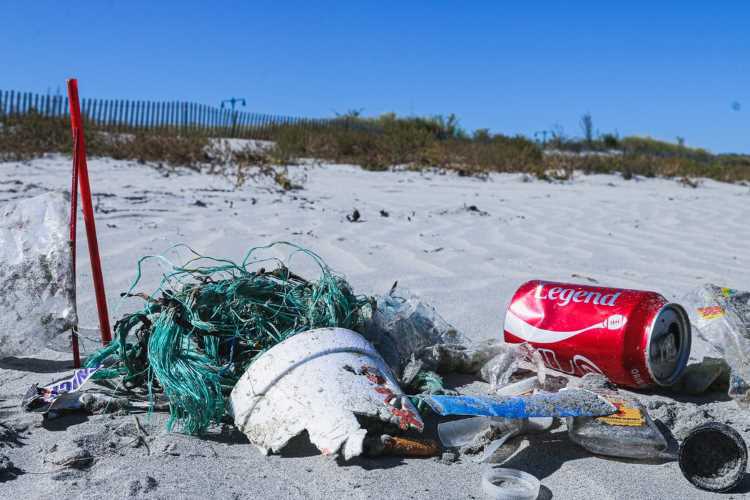
The scale of plastic pollution may be much more than previously estimated. A study led by Chelsea Rochman of the University of Toronto reveals that 53 million tonnes of plastic could flow into rivers, lakes and oceans each year from 2030 even if all international commitments to reduce plastic waste are adhered to.
The study finds that the increases in waste management capacity will not be enough to manage the projected growth in plastic waste generation. It says the efforts to recover plastic waste may not reach even 10% of annual emissions, without a major technological breakthrough in the field. The study published in Science calls for extraordinary efforts to meaningfully reduce plastic emissions in the next 10 years. The research emphasises the need to stop growth in the production and use of plastic, a fundamental change in the global plastic economy where plastic products are valued and not considered waste.
READ I Humans cannot win the war against nature

The global efforts to bring down plastic waste must not see plastic pollution as a unidimensional issue. They should factor in the financial and social costs of mitigation plans and the impacts of different plans to achieve this end. They should also consider social justice, and human and environmental health needed to achieve sustainable development goals. The study cites the example of waste-to-energy processing that may cut plastic waste volumes, but could have major implications for human health due to hazardous by-products and greenhouse gas emissions.
Various researches have highlighted the threat posed to the sustainability of our planet by plastic pollutants. The world nations and businesses are responding in a massive scale with grassroots action, product bans, product alternatives, investment in waste management, and by bringing in greater transparency in plastic waste trade. The study says these efforts may fall short of requirements to achieve substantial cuts in plastic pollution.
READ I The New Education Policy: Twenty ideas that will shape India’s education system
The study suggests policy changes including a reduction/ elimination of the use of unnecessary plastics, limits for virgin plastic production, global standards for commodity plastics to be recoverable and recyclable by design, and scaling up of plastic processing and recycling efforts.
World nations are finding it difficult to manage huge volumes of plastic waste. Plastic waste is present in the poles, deep ocean basins, and marine and freshwater ecosystems. The global petrochemical industry has lined up more than $204 billion investment
Sajna Nair is a former banker. Her areas of interest are environment, art and culture.


